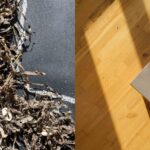Though full of his trademark humor, Calypso, the latest look at life through the lens of David Sedaris also takes serious stock of family bonds and fleeting mortality.
Appropriately, after releasing the first volume of his diaries that took us all the way to back to his youth, David Sedaris’ latest book release speeds us back to the present day. Calypso shares much in common with Sedaris’ best-loved work — wry observations about human nature, overheard inadvertently comedic turns of phrase, the continued deployment of his family as an evolving cast of characters. What’s new here is Sedaris’ beach house, The Sea Section, around which much of the action revolves and the fact that the Sedaris family has lost another family member.
Followers of Sedaris’ work know that he lost his mother to cancer some time ago, and she’s definitely one of the dear departed that haunt Calypson. But the more recent loss here is the suicide of sister, Tiffany. Sedaris grapples with why his sister may have led a life that led to the loss, noting how she blew through an inheritance she received and recalling their upsetting final meeting when she attempted to unpleasantly surprise him at the stage door of a speaking engagement. He and his siblings discuss the fact that, though they had believed her death to be an overdose, they discover that her death certificate lists her cause of death as asphyxiation, meaning that she’d tied a plastic bag over her head as a secondary measure to ensure her big goodbye. In one of his most macabre riffs, Sedaris wonders whether – as so many bags do – it bore the logo of some chain store: if she died with a brand plastered over her face.
Don’t worry — there’s much lighter fare here, too. Sedaris develops a relationship with his Fitbit, which brings out his obsessive side, even in the face of a crippling stomach virus. He spends time on tour asking people to share the most insulting terms their languages have to offer, and the results (often involving anatomically improbable uses of various orifices) are very funny. He contrasts the foibles of his own family with that of his long-time partner Hugh, including his mother-in-law’s tendency to assume everything told to her is some kind of lie or exaggeration, and a trip to Japan sees various members of the family Sedaris taking the town in the most outré ensembles they can assemble.
But perhaps the greatest departure in Calypso is in Sedaris’ depiction of his parents. In the majority of his work, Sedaris paints his dad as something of a shrill know-it-all and his mom as an alluring, cigarette-puffing raconteur. Here, his father — though still possessed unfortunate dedications to Fox News and hoarding — is shown to take a real delight in his family, showing them a level of concern and affection that is a marked departure from his younger, sterner self. Meanwhile, Sedaris seems newly ready to accept that his mother (so lionized and sainted in his other works) may have been a high-functioning alcoholic — often too well-served to even remember the events of the previous night’s dinner.
The breakdown of the human body is on display throughout Calypso: Sedaris develops a fatty tumor, which a fan offers to remove so that he may save it to feed to a box turtle. The author also takes a fall from a ladder that breaks eight ribs — one of a number of things that have been depressing him lately, according to a section of the book that addresses the realities of a post-Trump-election world. Sedaris even catches his father attempting to bandage an injury with tape and cotton balls rather than splurge on extravagantly-priced band-aids. But through pain, the indignities of age, and the loss of loved ones, Sedaris maintains a unique point of view, which seems to suggest anything from the possibility of his departed sister attempting to communicate from the great beyond by flooding his house with butterflies to the fact that former CIA director James Comey spent some time visiting a few houses down from The Sea Section can be equally worthy of the response, “Well, isn’t that a story worth telling?”
Last modified: June 4, 2018














